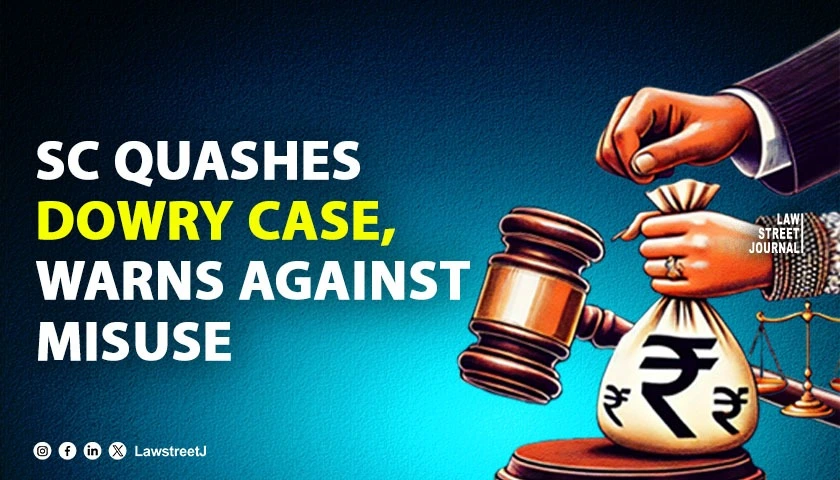New Delhi: The Supreme Court has quashed criminal proceedings against a husband and his parents in a dowry harassment case, emphasizing the need for cautious application of criminal law to prevent its misuse.
Supreme Court Stresses Cautious Use of Section 498-A and Dowry Prohibition Act
Justices Vikram Nath and Sandeep Mehta made crucial observations on the proper use of laws protecting women from dowry harassment and domestic cruelty. The court addressed appeals arising from criminal proceedings under Section 498-A of the IPC and Sections 3 and 4 of the Dowry Prohibition Act. It noted, “Criminal law should not be used as a tool for harassment or vendetta.”
Addressing the specific case, the court observed that the allegations against the father-in-law and mother-in-law were “general and lacked specificity,” with no concrete details of dowry demands or acts of cruelty attributable to them.
Court Highlights Misuse of Criminal Law in Dowry Harassment Cases
The court highlighted that the couple had a love marriage and initially experienced a harmonious relationship. It stated, “The allegations in a criminal complaint must be scrutinized with care to ensure that they disclose a prima facie case before subjecting individuals to the rigors of a criminal trial.”
In its directive, the court emphasized, “While the provisions are intended to protect women from cruelty and dowry harassment, they should not be used to settle personal scores or pursue ulterior motives.”
The court noted that the Family Court had already granted a divorce on the grounds of cruelty by the wife, finding her allegations regarding dowry demands and harassment to be baseless and false.
The appellants argued that the criminal proceedings were baseless and constituted an abuse of the process of law, while the complainant’s allegations remained unsubstantiated.
Case Title: P.V. Krishnabhat & Anr. vs. The State of Karnataka & Ors.
Criminal Appeal arising from SLP(CRL.) No.1754/2024















